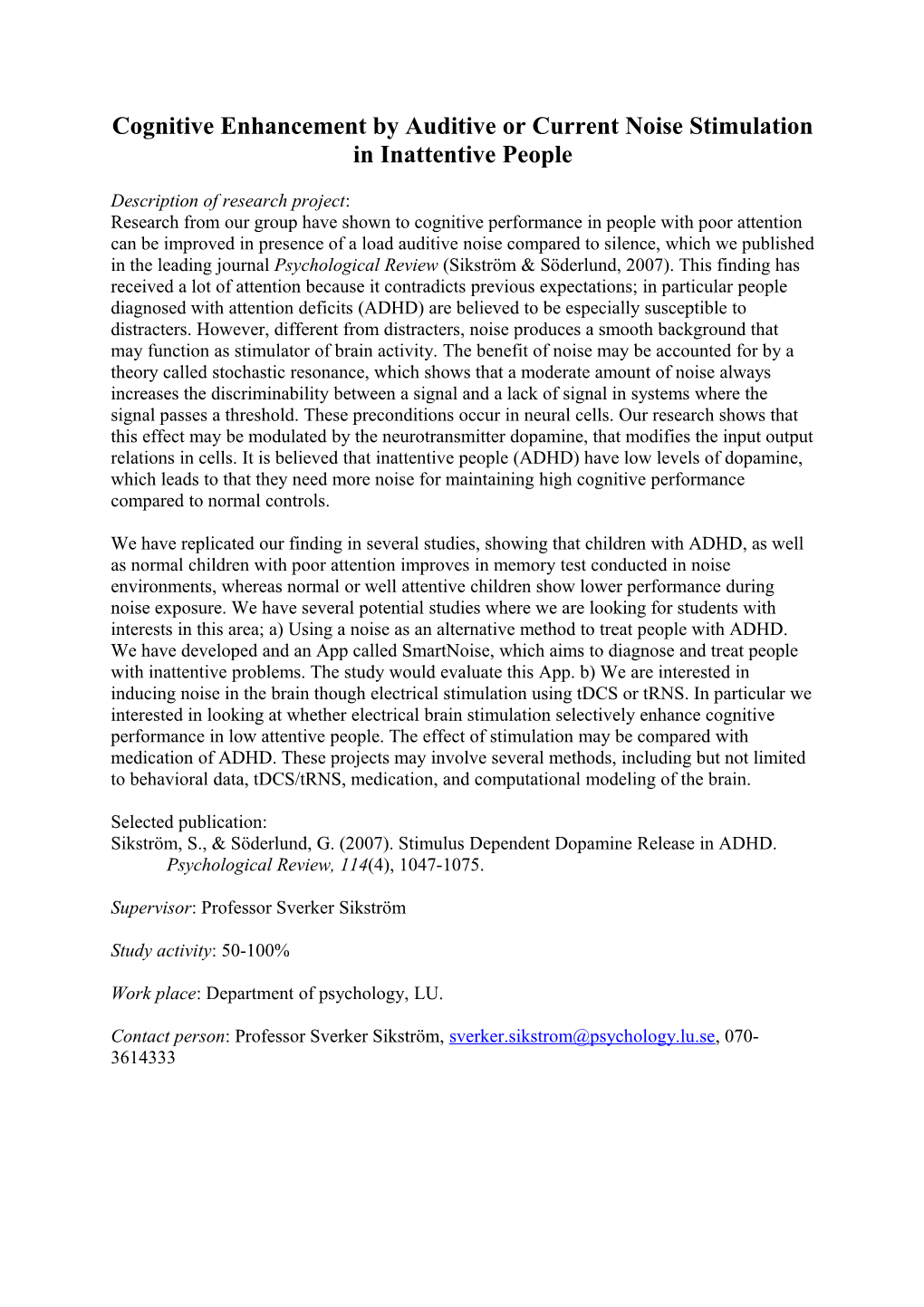Cognitive Enhancement by Auditive or Current Noise Stimulation in Inattentive People
Description of research project:
Research from our group have shown to cognitive performance in people with poor attention can be improved in presence of a load auditive noise compared to silence, which we published in the leading journal Psychological Review(Sikström & Söderlund, 2007). This finding has received a lot of attention because it contradicts previous expectations; in particular people diagnosed with attention deficits (ADHD) are believed to be especially susceptible to distracters. However, different from distracters, noise produces a smooth background that may function as stimulator of brain activity. The benefit of noise may be accounted for by a theory called stochastic resonance, which shows that a moderate amount of noise always increases the discriminability between a signal and a lack of signal in systems where the signal passes a threshold. These preconditions occur in neural cells. Our research shows that this effect may be modulated by the neurotransmitter dopamine, that modifies the input output relations in cells. It is believed that inattentive people (ADHD) have low levels of dopamine, which leads to that they need more noise for maintaining high cognitive performance compared to normal controls.
We have replicated our finding in several studies, showing that children with ADHD, as well as normal children with poor attention improves in memory test conducted in noise environments, whereas normal or well attentive children show lower performance during noise exposure. We have several potential studies where we are looking for students with interests in this area; a) Using a noise as an alternative method to treat people with ADHD. We have developed and an App called SmartNoise, which aims to diagnose and treat people with inattentive problems. The study would evaluate this App. b) We are interested in inducing noise in the brain though electrical stimulation using tDCS or tRNS. In particular we interested in looking at whether electrical brain stimulation selectively enhance cognitive performance in low attentive people. The effect of stimulation may be compared with medication of ADHD. These projects may involve several methods, including but not limited to behavioral data, tDCS/tRNS, medication, and computational modeling of the brain.
Selected publication:
Sikström, S., & Söderlund, G. (2007). Stimulus Dependent Dopamine Release in ADHD. Psychological Review, 114(4), 1047-1075.
Supervisor: Professor Sverker Sikström
Study activity: 50-100%
Work place: Department of psychology, LU.
Contact person: Professor Sverker Sikström, , 070-3614333
